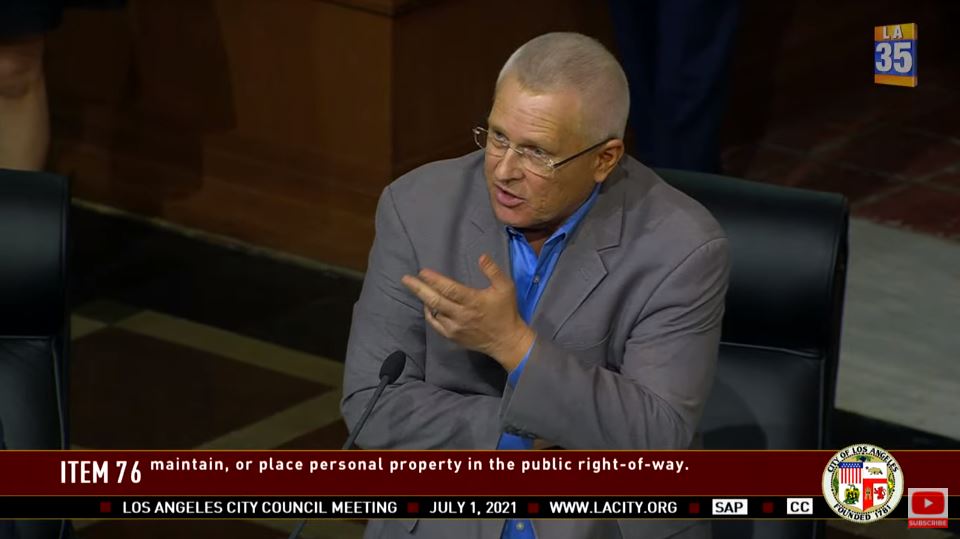By ERIC HE
New buildings in Los Angeles will be required to be all-electric under a policy approved by the City Council Wednesday as part of a movement to reduce carbon emissions in the city.
The requirement applies to buildings approved after April 1, and affordable housing projects approved after June 1 of next year. Accessory dwelling units and cooking equipment for restaurants are exempt.
Leap LA, a coalition of community groups and environmental justice advocates, partnered with the city to develop the ordinance. Advocates told City News Service that the 12-0 vote is a step toward eventually retrofitting all existing buildings to be carbon-free.
“We think this is a super important, logical first step that allows us to make progress in our net-zero carbon goals as outlined in the Green New Deal,” said Chelsea Kirk, policy analyst at Strategic Actions for a Just Economy.
Under the ordinance, buildings are prohibited from having combustion equipment, gas piping, or fuel gas for purposes such as space and water heating, cooking appliances and drying clothes. Electricity must be the sole source of energy for all lighting, appliances and equipment.
Buildings account for 43% of greenhouse gas emissions in Los Angeles, more than any other sector in the city. Los Angeles has a target of becoming carbon-free by 2035.
Carbon-free buildings contain better air quality indoors, have lower construction costs and fewer safety risks than mixed-fuel buildings, according to the ordinance. Refraining from gas power would also limit the risk of explosion or fire in the event of an earthquake.
Kirk said it was important to show that the policy would not increase cost for developers.
“It wasn’t more expensive to build electric construction over gas construction, so there was no cost differential that made it so that it was preferable to build gas,” Kirk said.
Gloria Medina, executive director of SCOPE LA, told CNS that community members in South Los Angeles made an effort to learn about decarbonization and the impacts of poor climate on their health.
“It is about Black, Brown and Indigenous community members at the forefront,” Medina said. “This is their win.”
Front-line communities have been raising concerns “for a long time,” according to Nancy Halpern Ibrahim, executive director of Esperanza Community Housing. Those concerns have “only recently” been “heeded by our systems and politicians,” she said in a statement.
“We want to be clear that this was only possible because of the leadership of front-line communities,” Ibrahim said.
An ordinance to require the electrification of all existing buildings will be more complicated, with concerns over rent increases and disruptive construction impacting tenants. Advocates are seeking tenant protections to ensure there are no unintended consequences of the policy.
Councilman Paul Koretz said the goal was to consider requiring electrification of both new and existing buildings at the same time, but said the council “needed more time to get it right.”
The city also must create the capacity to electrify buildings through clean energy, according to Councilman Mitch O’Farrell. O’Farrell urged the city to work with both private and public partners to upgrade transmission lines and make clean power purchase agreements.
“If we do this requirement but don’t have the capacity, that means we will electrify through the generation of dirty energy,” O’Farrell said.
Councilwoman Nithya Raman said retrofitting older buildings is “a big challenge that lies ahead, as well as the challenges around capacity.”
“We are in a good position to be able to discuss those issues in detail, with the safeguards that we need to ensure that renters are not bearing the burden of retrofitting costs,” Raman said.
Supporters of the ordinance were not at the chamber Wednesday, nor did they provide public comment — in solidarity with protesters demanding that Councilmen Kevin de León and Gil Cedillo resign before meetings take place.
“It hasn’t been easy to see all of the work that we have been doing for the past years end up right now in chamber — in a moment when we just feel like we cannot participate,” Medina said. “We have been standing by, listening and reassuring ourselves that the work that we have done … speaks for itself.”







